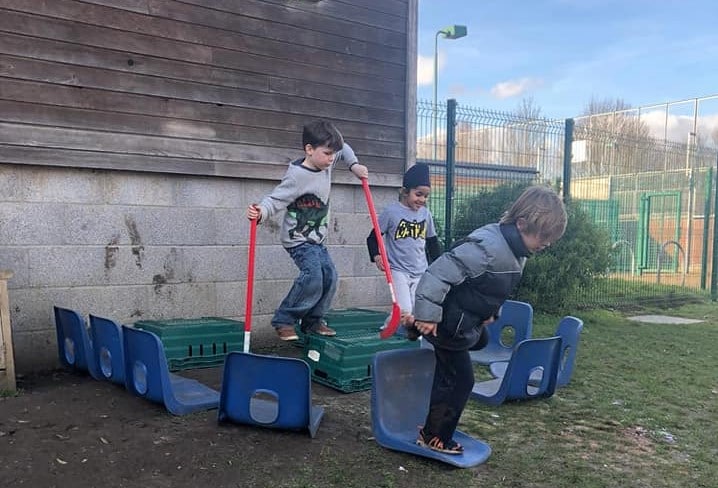What is a Play Leader at Smartkidz Play and Learn?

Working with children is well known as one of the most rewarding, challenging and multi-faceted jobs there is. Whether you work in a nursery, a school, a forest school or an after-school club, you will know that every day brings a new challenge. Despite the regular routines, no two days are ever the same.
At SmartKidz Play and Learn, we use a combination of strategies from playwork and forest school in a way that is unique to our settings:
- All our clubs have free-flow access to the outdoors.
- We blend some of the ‘guided and collaborative’ sessions of Forest School with the ‘facilitator only’ approach of playwork.
- To do this, we have an incredible team of highly trained staff who can manage both styles.
- They aim to provide the children with precisely what they need to open their imaginations and engage in play.
As a result of this approach we have several staff-members in unique roles. In this article we want to share one of those with you and at the same time give you some insight into how we run our club.

Our Lead Playworker
A lead playworker oversees a team of playworkers and is the driving force behind developments and improvements. At Smartkidz, we call this role ‘Play Leader’.
A play leader at Smartkidz:
- Has a significant impact on the direction that each day takes.
- Acts as a role model to all staff, linking them firmly to the models of practice we follow; PARs and Forest School.
- Leads development and training in PARS across each of our settings.
The influence of Forest School
Smartkidz is inextricably linked to Forest School, we share many similar aims and objectives and our play leader ensures that a Forest School approach is used when appropriate. Forest school sessions appear regularly in our holiday play schemes and we employ a small number of staff who are Forest School trained.
In most of our settings, we encourage free engagement with our outside area, allowing children to be adventurous and use their imagination. It is our play leader’s job to coordinate any modifications that will allow children to better interact with the environment.
We aim to be continually modifying our sites and the things we can offer. A child’s imagination is never still, so we attempt to follow their example and give them a space that matches their needs and inspires them. Some of the recent modifications to our outside areas have been:
- Loose parts have been added to the front playground at Girton, including tyres, wooden planks, barrels etc.
- We have created a role play space out of crates, planks and tyres that the children have been using as a pirate ship.
- A small shed has been added to our Haddenham setting to allow more loose parts within the environment.
PARS playwork and training
PARS is the model of playwork practice in which we train our staff. It is based on the philosophy of the pioneers of adventure playgrounds. Our playworkers take the role of play advocate, observer and facilitator.
To do this, they must take a step back whenever possible and get involved only when it is necessary, to allow children’s play to continue. Our play leader is a vital part in the delivery of PARS training. They also act as our PARs ambassador within SmartKidz.

Our play leader is a direct link between the PARs international training team and us. They will deliver training and ensuring that we are always at the cutting edge of research and development.
We have witnessed the positive effect that the PARs playwork approach has on children’s leisure time and use it within our own aims and ethos. We host regular PARs training events and have close links with the current PARs training team.
Playwork provides the basis for a child-friendly environment where children are given the freedom to progress through their own choices. The core values of playwork, challenge much of what we understand to be standard practice when working with children. Adapting to these values is as much of a personal challenge as a professional one.
This is where the PARs model is so essential; it gives new and experienced playworkers a framework to support them progress to become a playworker. Our play leader isn’t only key to training PARS practitioners; they also provide crucial support to colleagues. To act as their advocate as they in turn adapt to become advocates for the children who attend Smartkidz.
Conclusion
We hope that this has been an insight into the direction and management at Smartkidz. The play leader has a large impact on the direction of Smartkidz and is key to maintaining our ethos and values. They are in the unique position of having the opportunity to enhance the positive influence our clubs have on hundreds of children.
